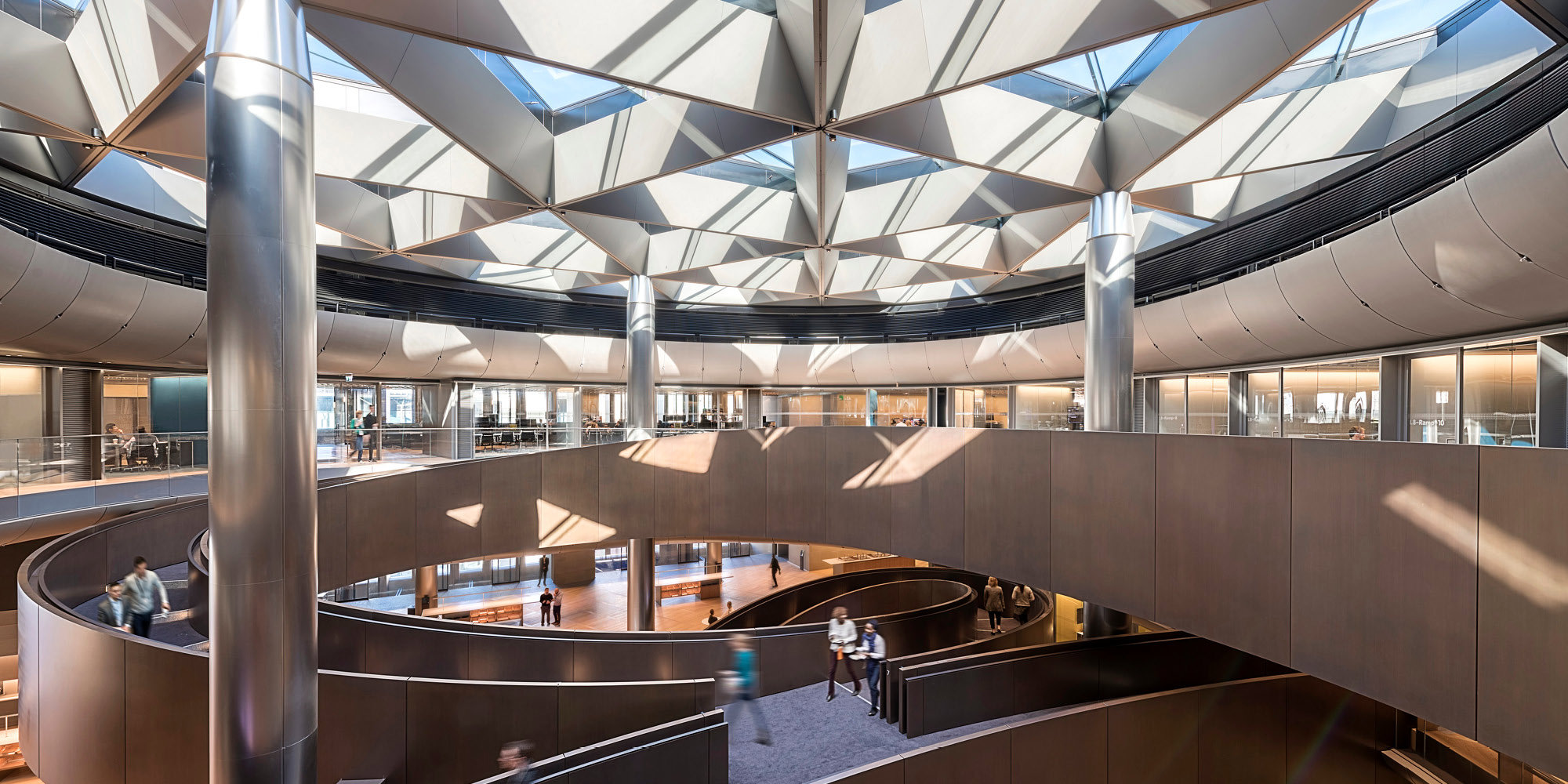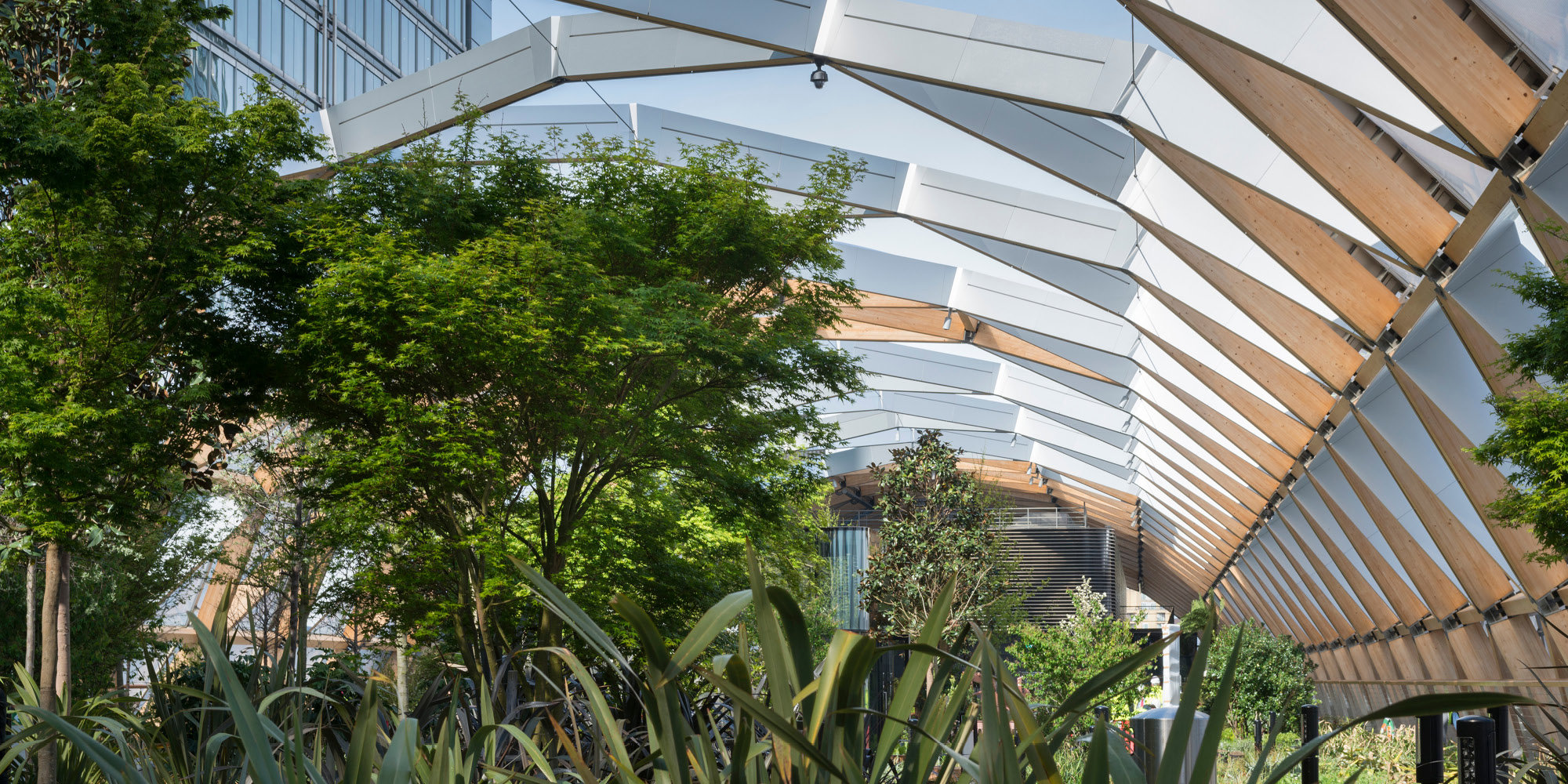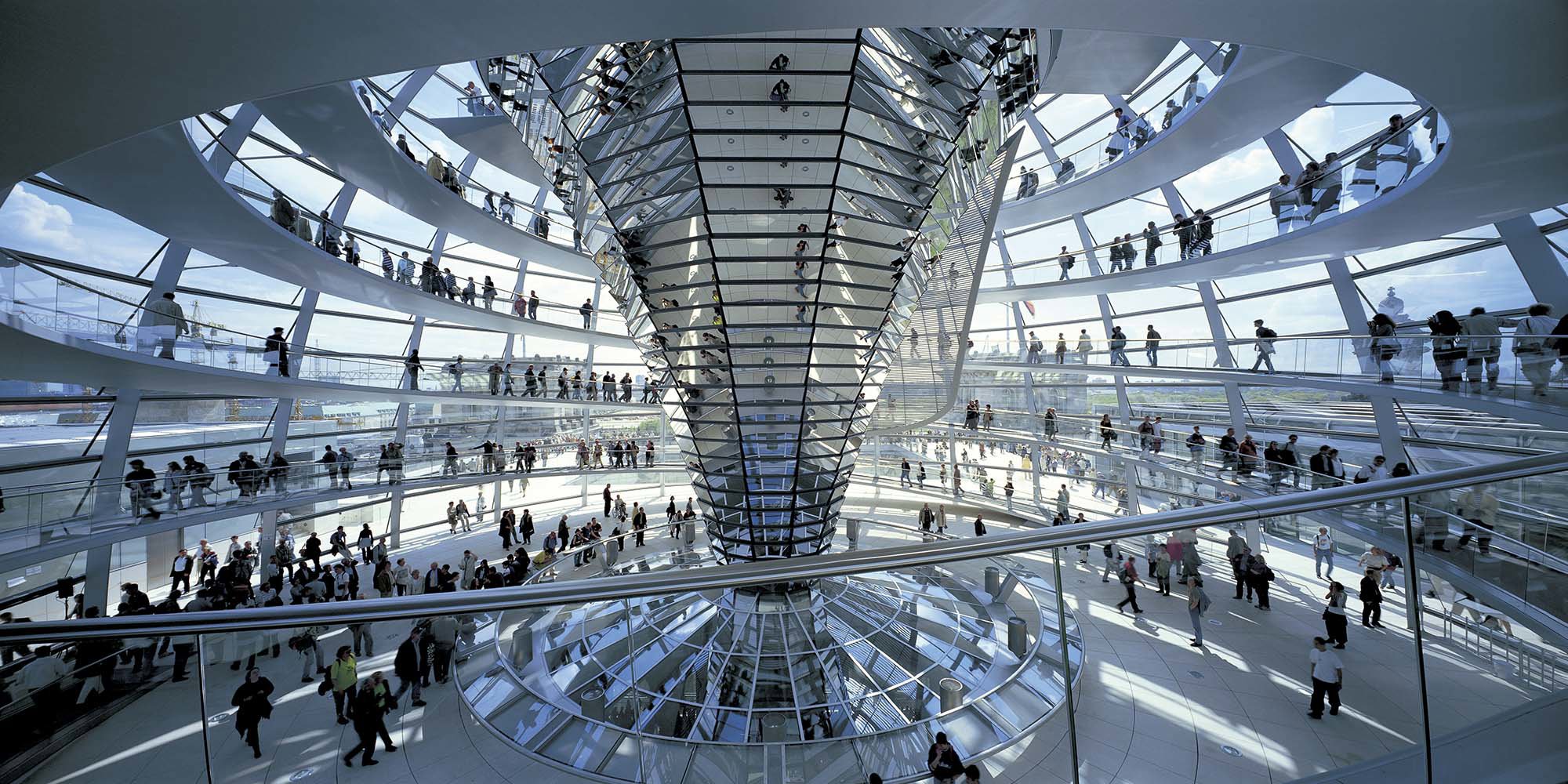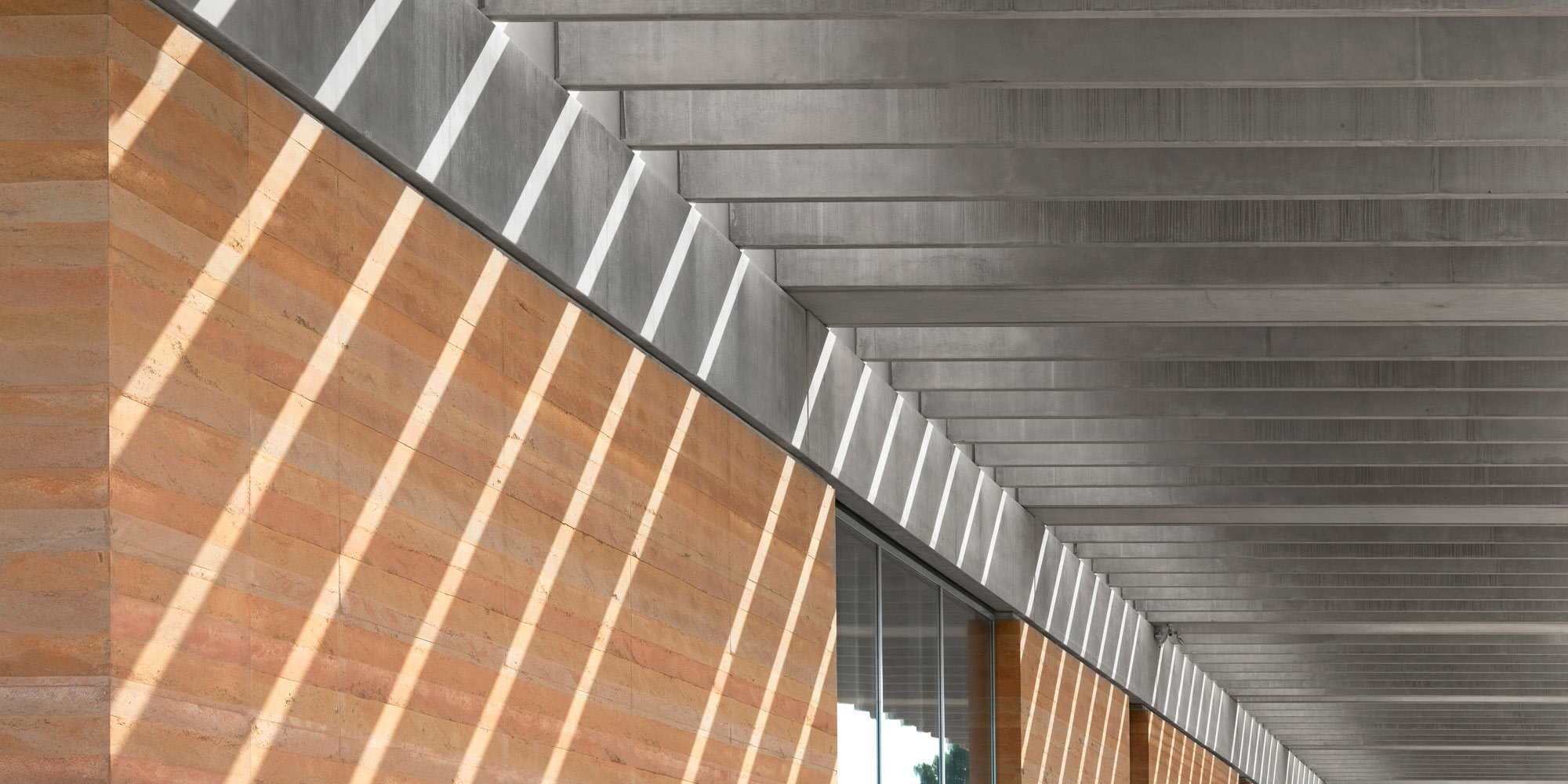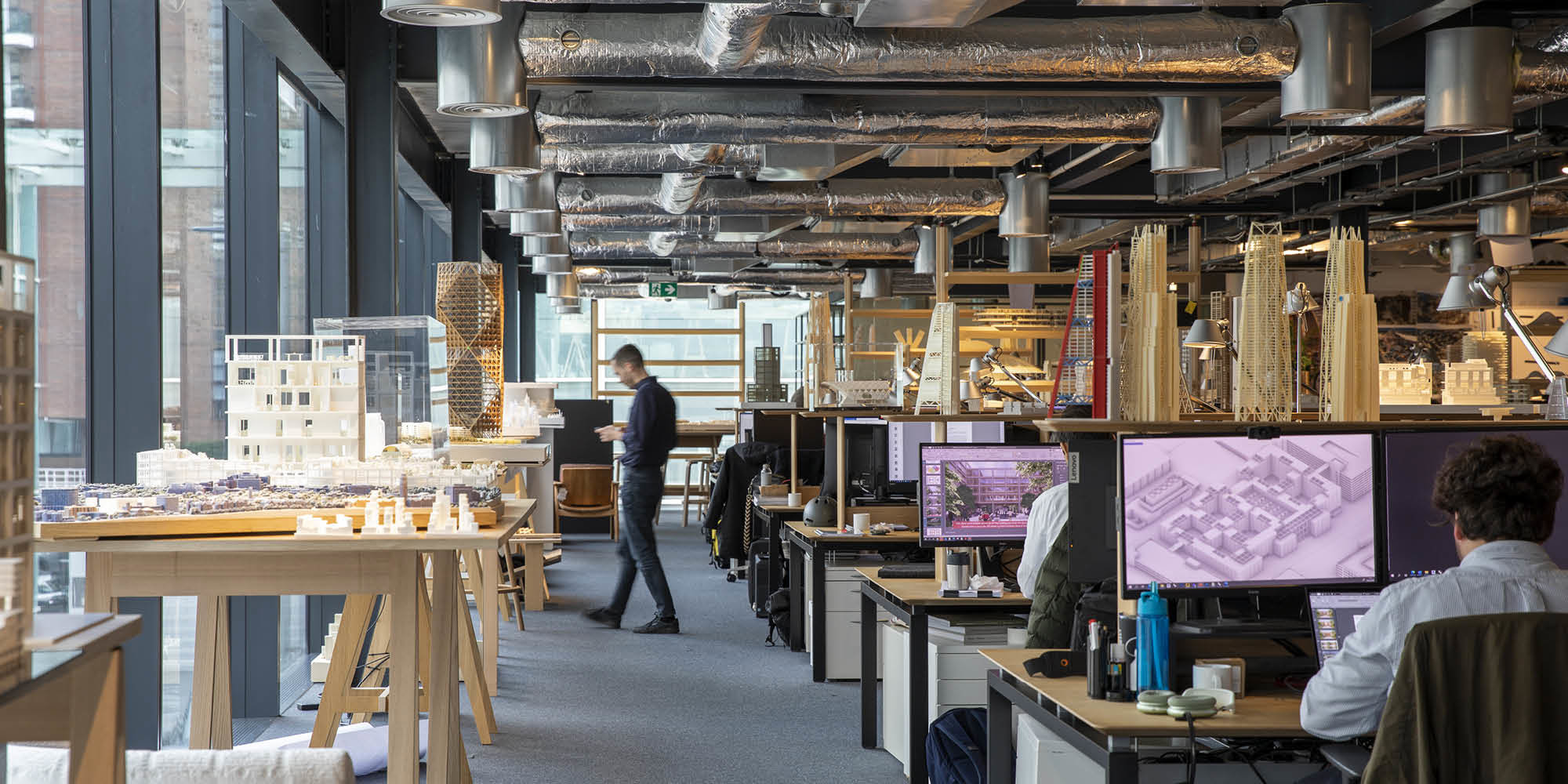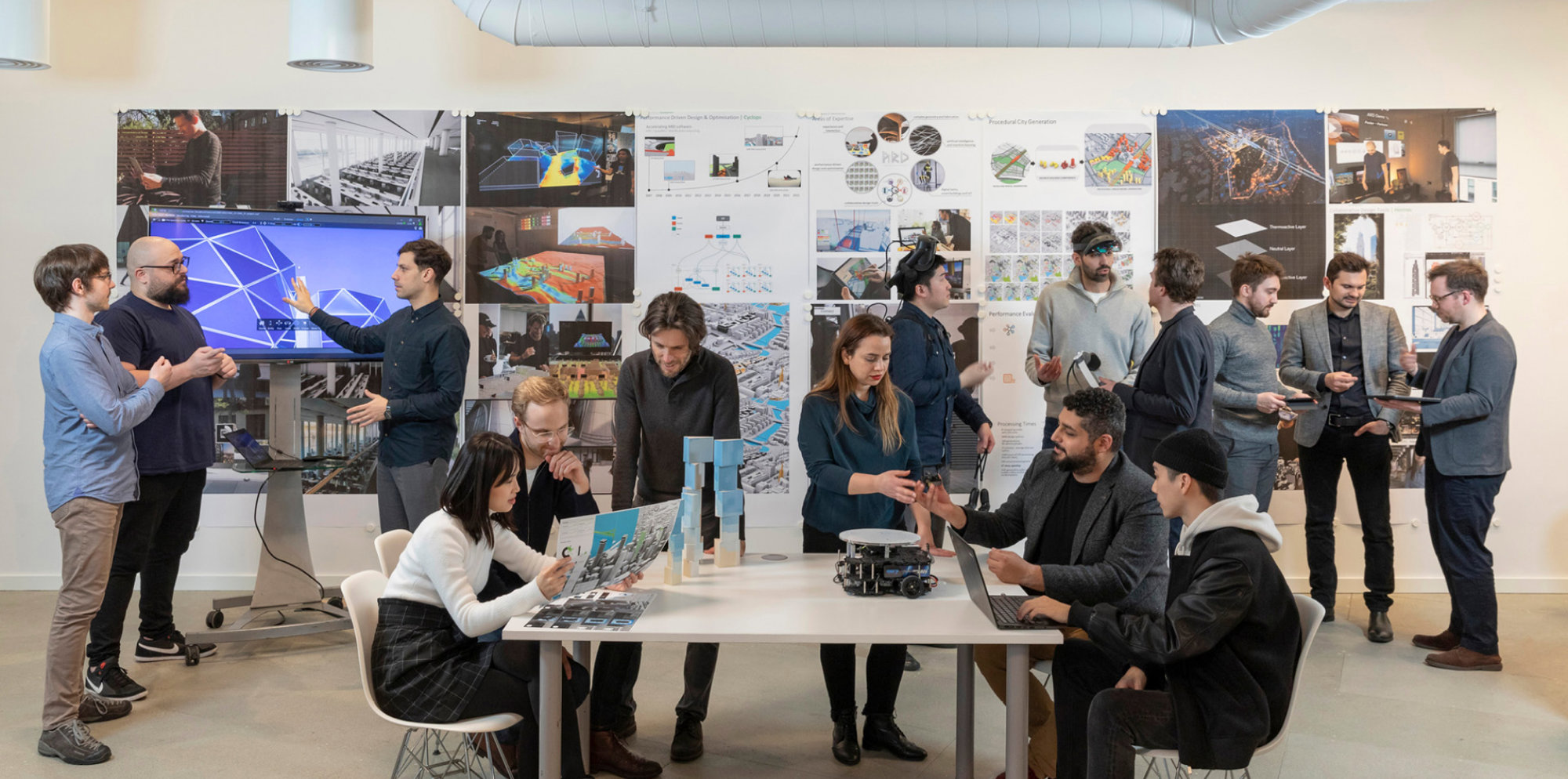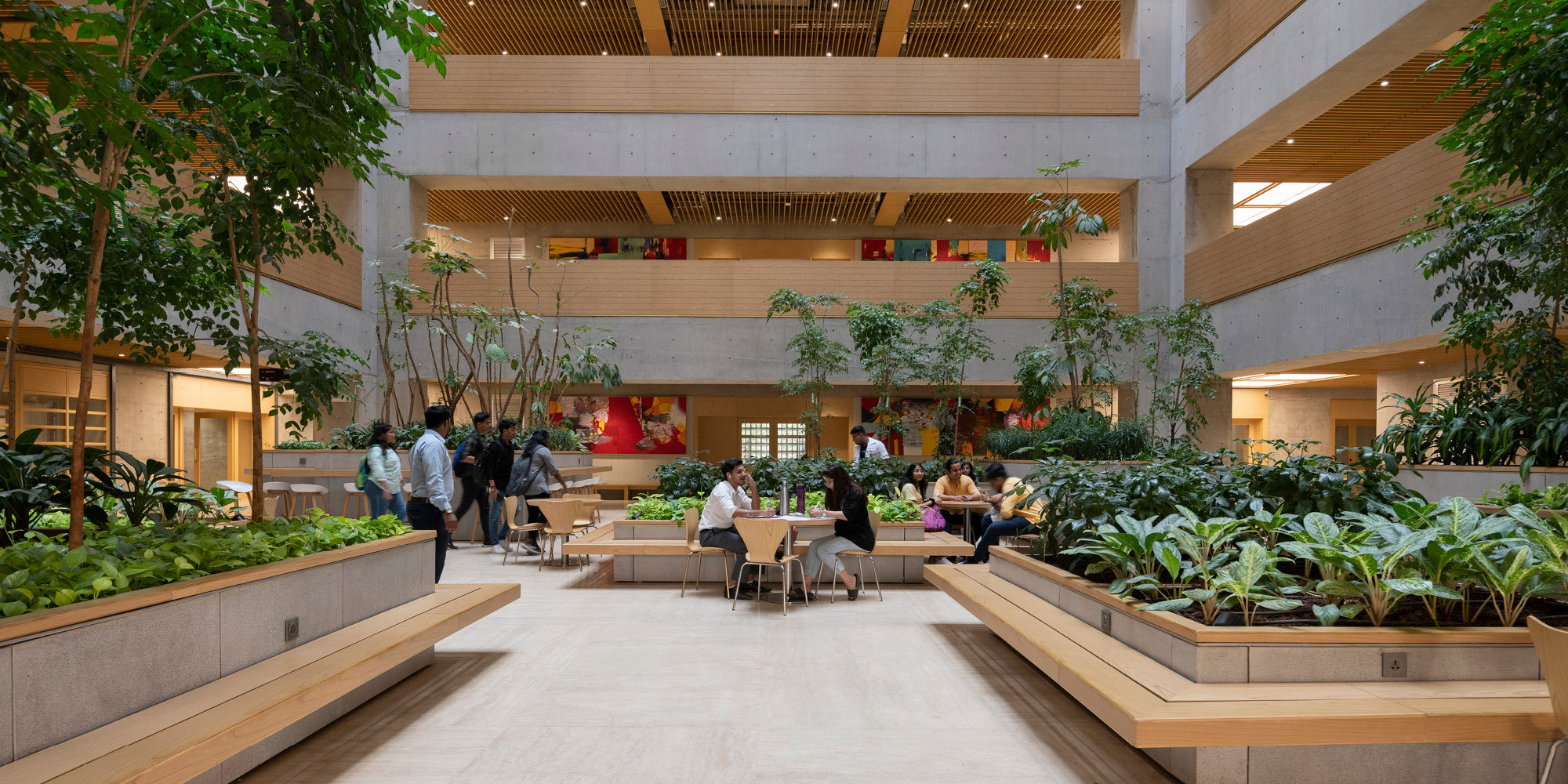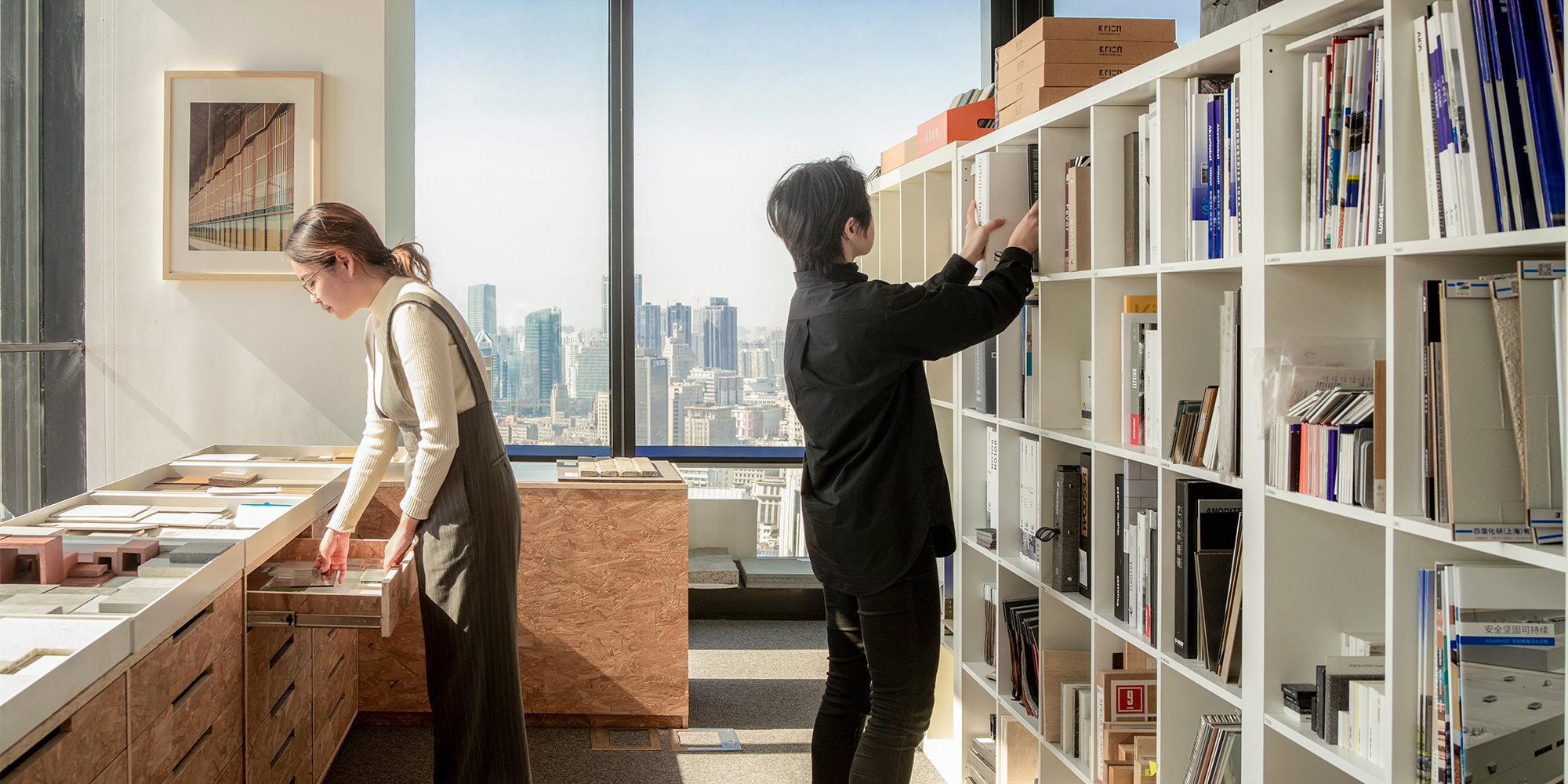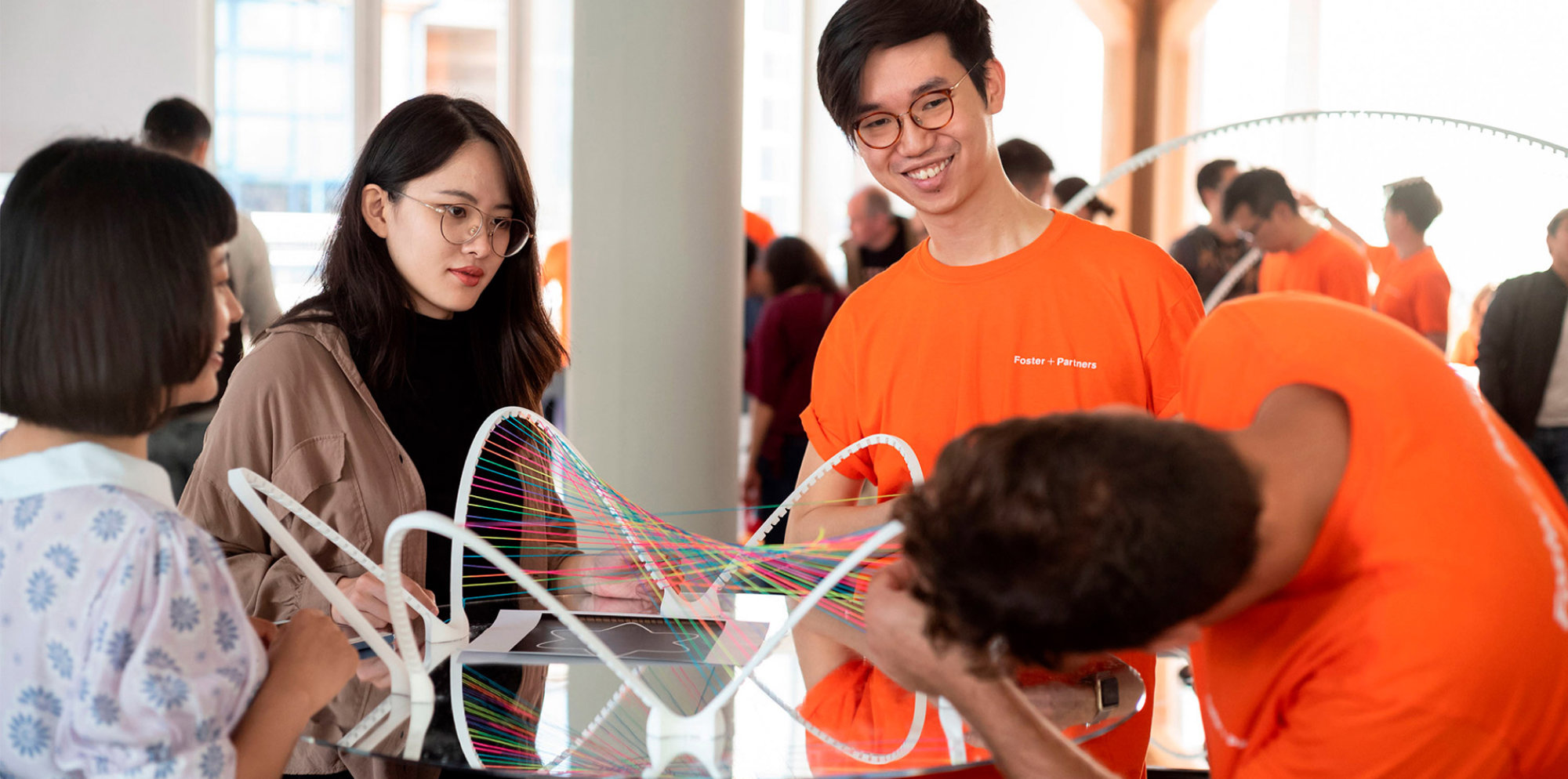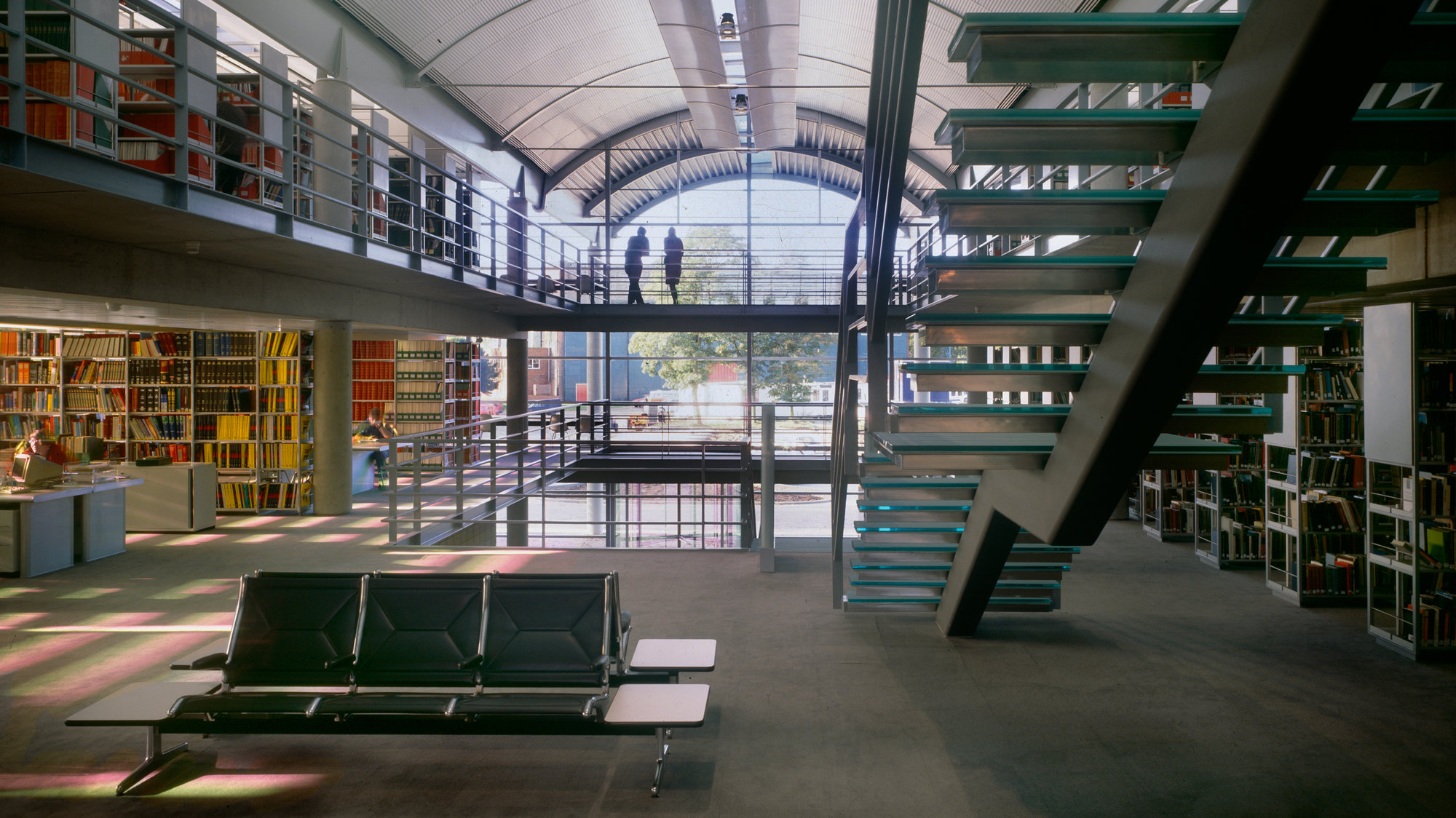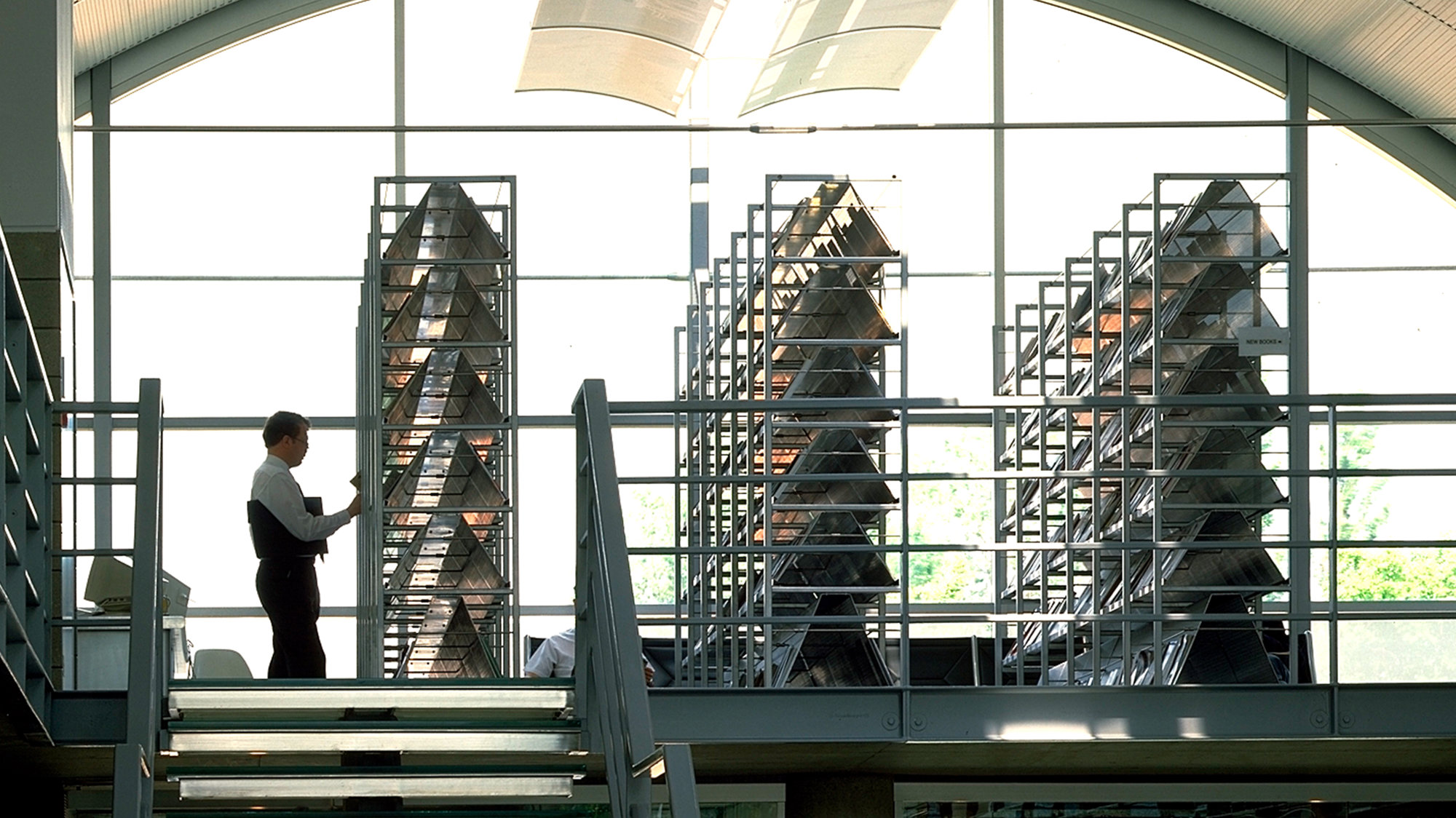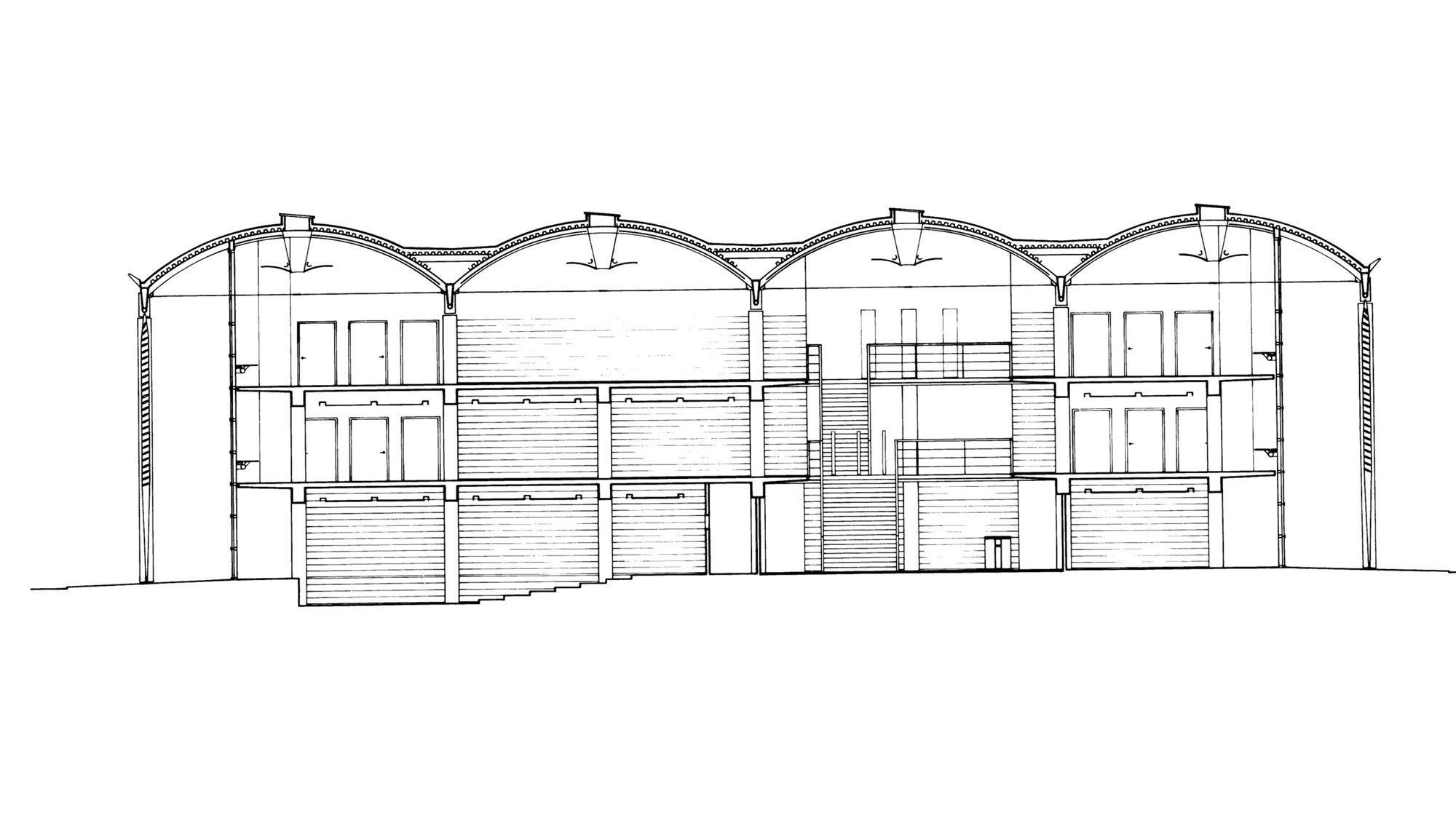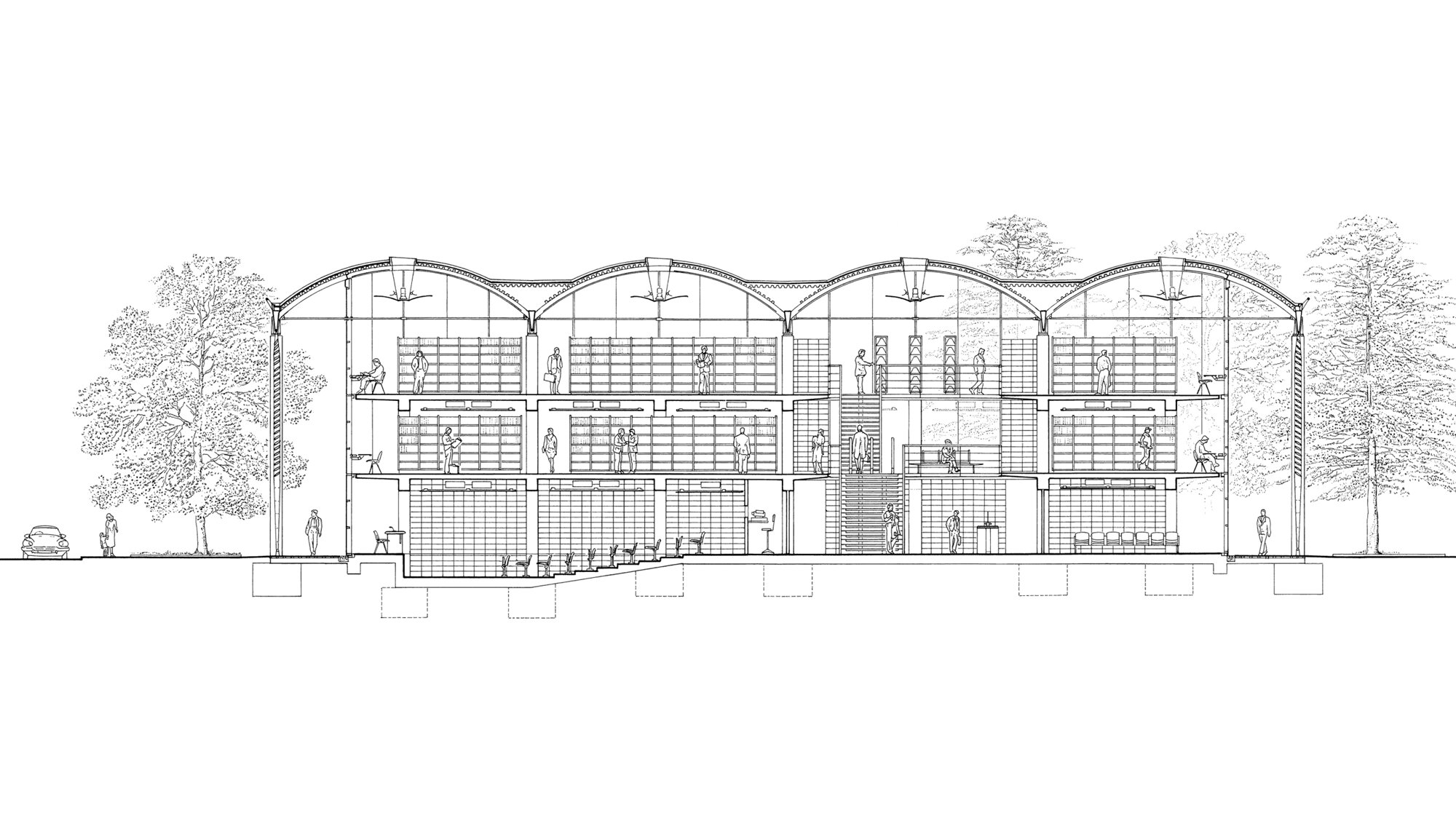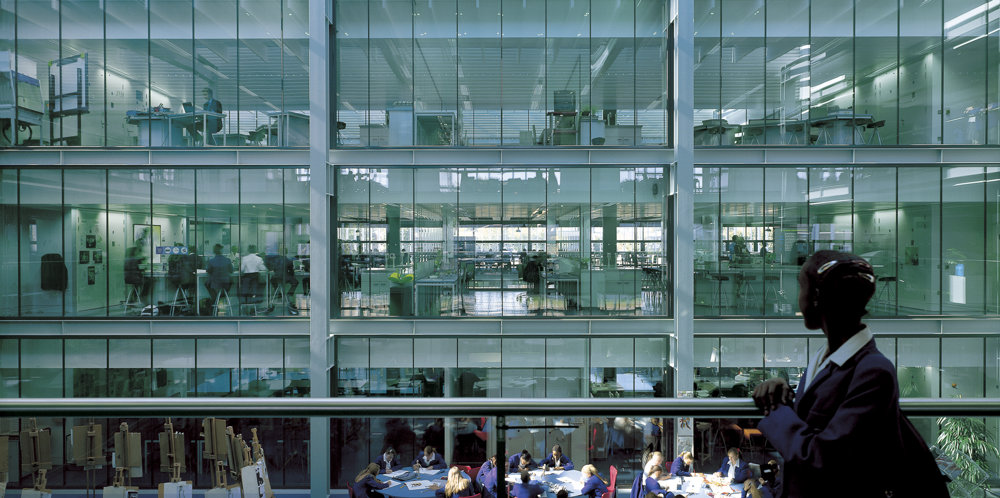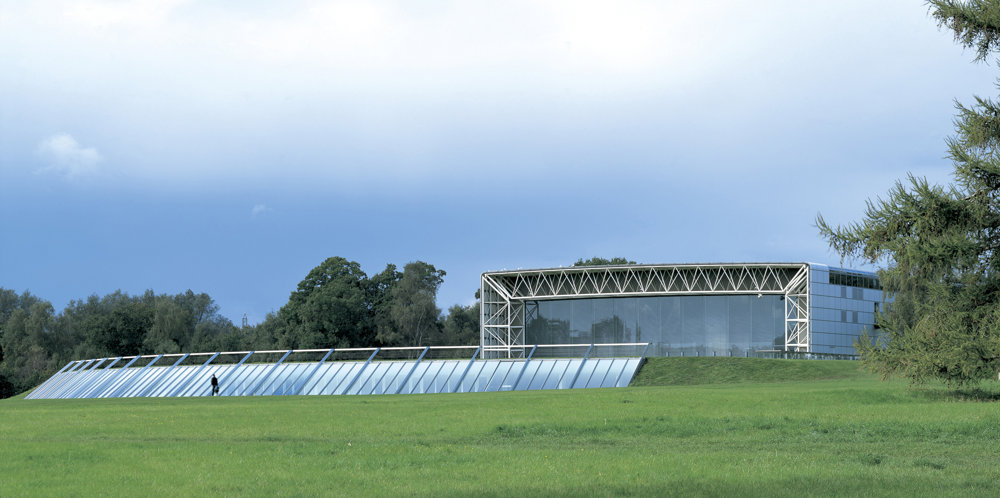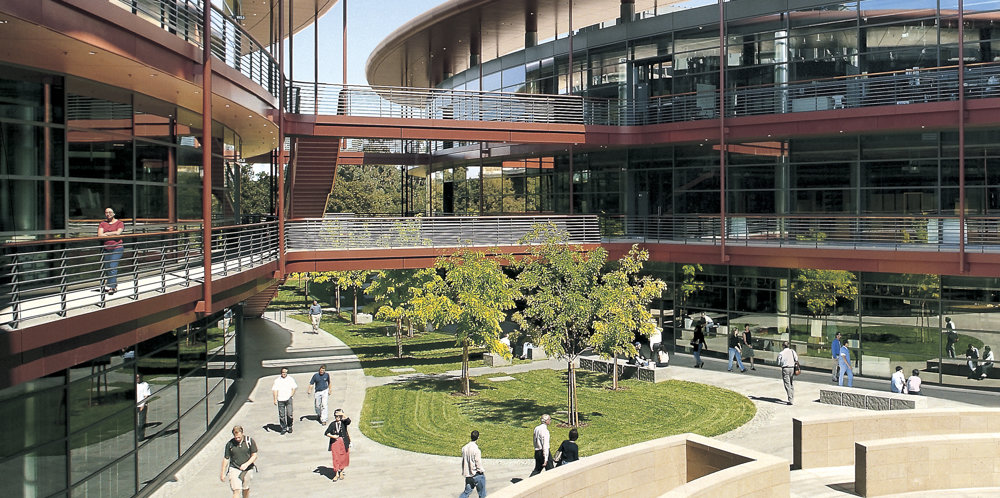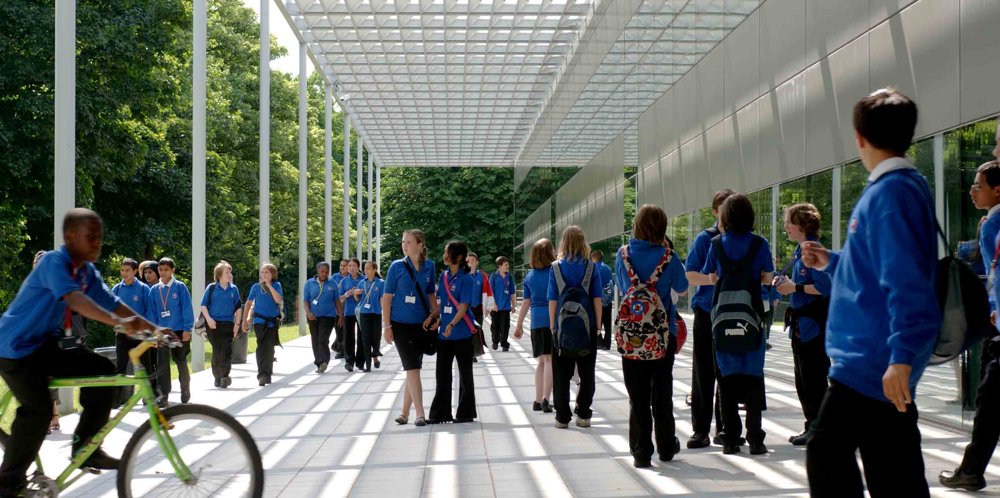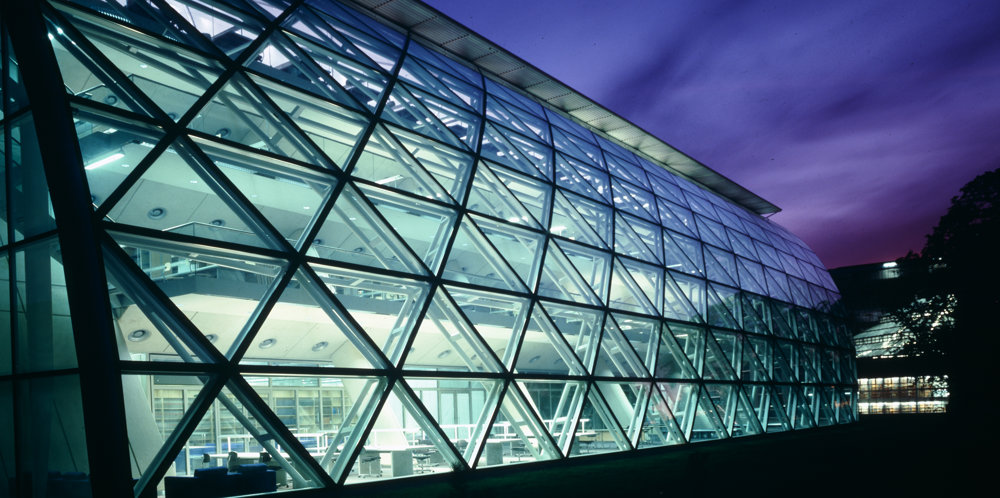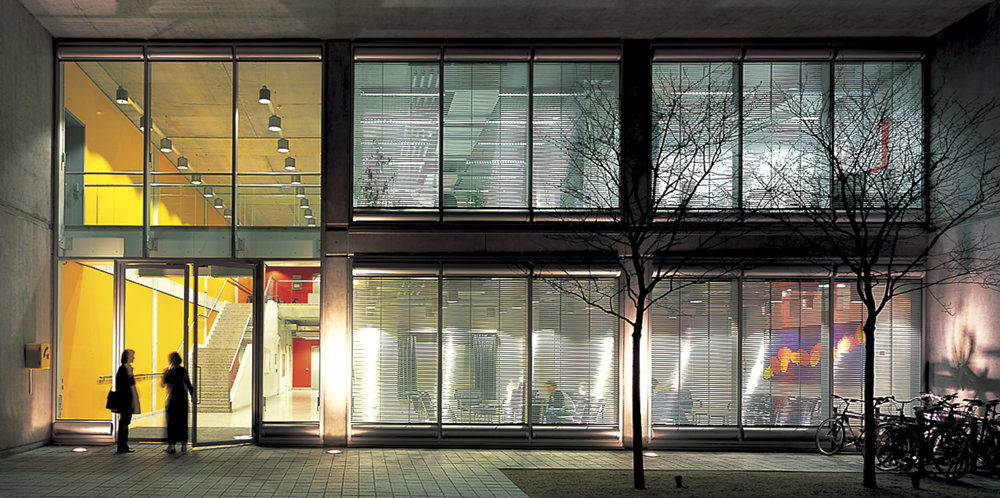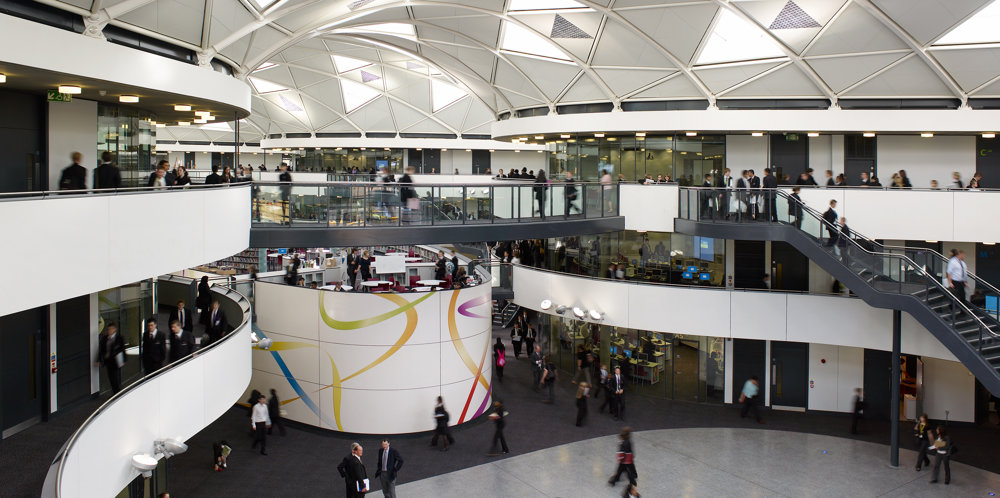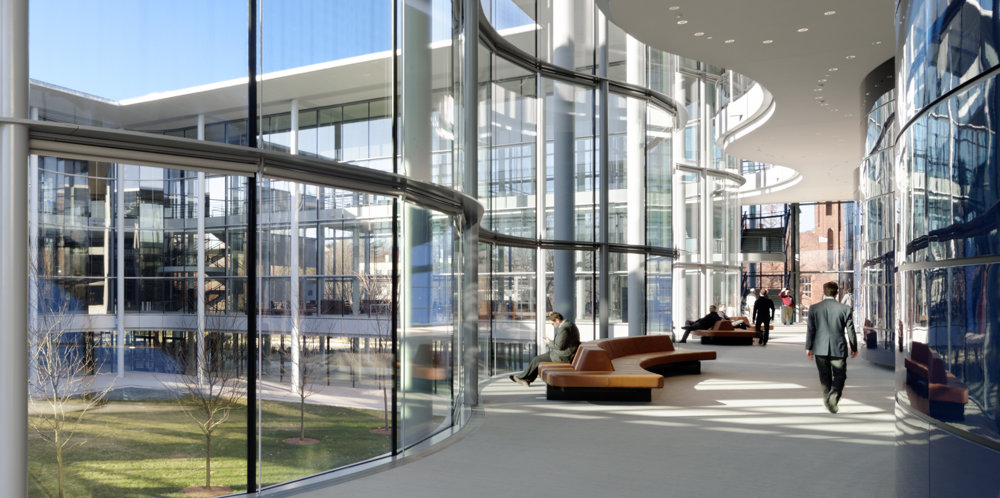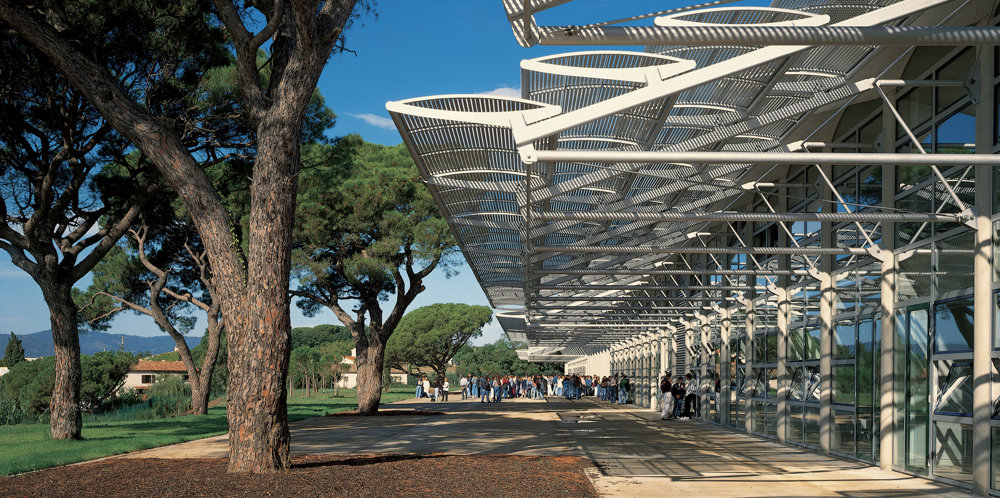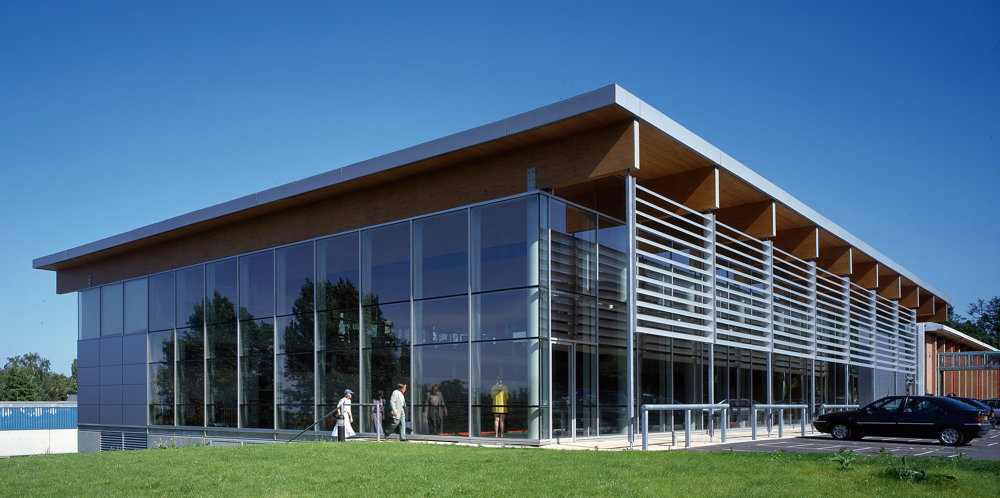Founded in 1946 as a school for aeronautical engineers, Cranfield University is today one of Britain’s leading technical education and research establishments, incorporating a wide range of postgraduate studies, and is a major foreign currency earner for research contracts. The new library was commissioned to provide a much-needed focus for the developing campus. Consistent with the innovation characteristic of the university as a whole, its design reformulates the concept of the library away from the closed book stacks, forbidding screens and security barriers of traditional libraries to something lighter, more open and accessible.
Built on a square plan, the building consists of four barrel-vaulted, steel-framed bays, one of which forms a broad central atrium - the hub of the library - linking all three floors. The overhanging roof provides sheltered walkways along the sides of the building, while at the front it extends to create a vaulted entrance canopy. Commentators have noted the building’s evocation of a classical temple, complete with peristyle and portico, which is perhaps appropriate given the symbolic role it plays at the heart of the campus.
In contrast to the traditional library, maximum use is made of glare-free natural light and views, with rooflights at the apex of each vault bringing natural light to the atrium and upper floors. Daylight is evenly distributed across the ceiling by gull-wing deflectors and can be supplemented by indirect lighting from continuous fluorescent tubes. External shading to the glass facades minimises heat gain during the summer months and allows comfortable conditions to be maintained through a ventilation-only system. The seven kilometres of open bookshelves are located on the upper levels, freeing the ground-floor entrance area for social uses, focused around a coffee bar. Storage systems are designed to adapt easily to advances in information technology, while a perimeter desking system allows students to plug in their own laptop computers and have instant access to the University’s electronic databases.
